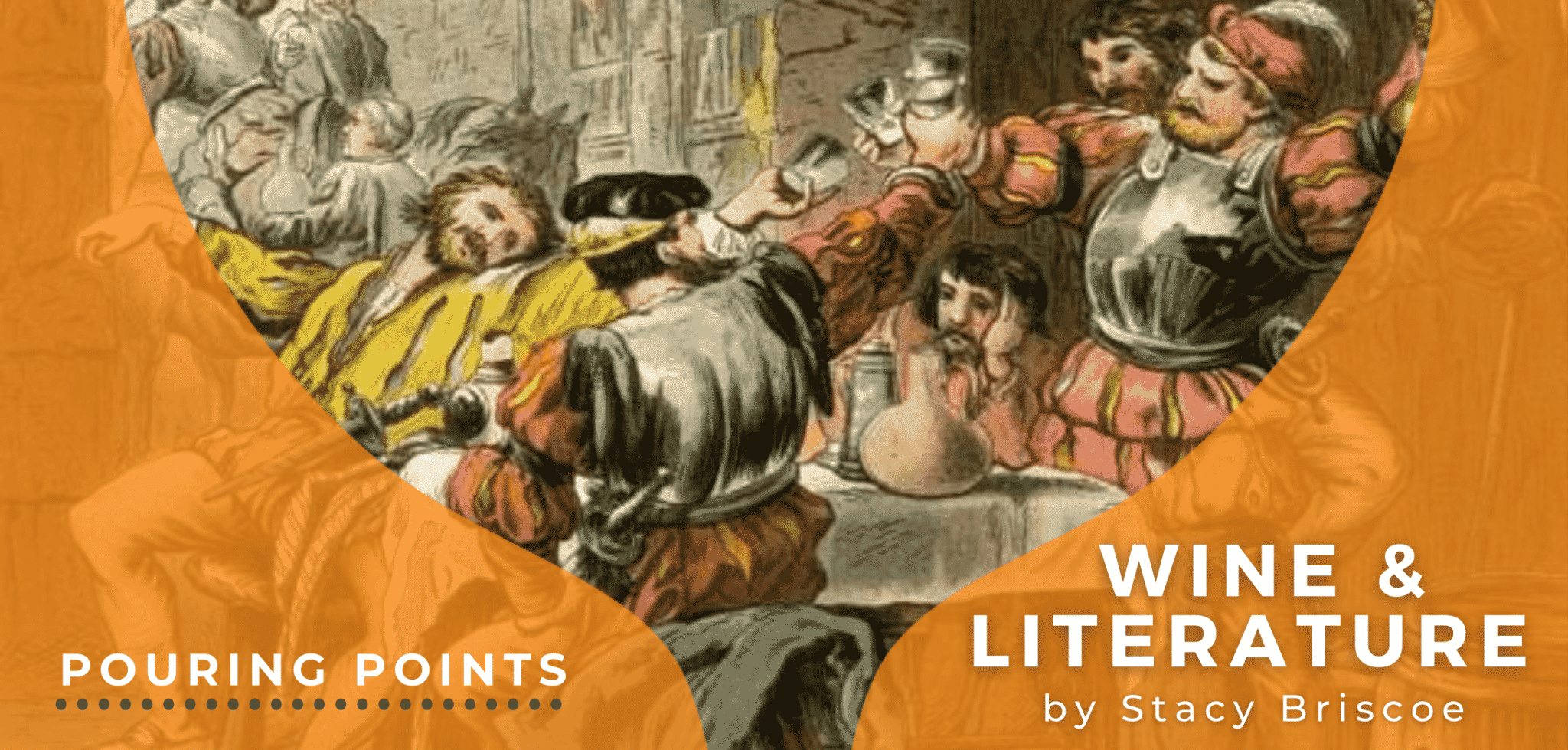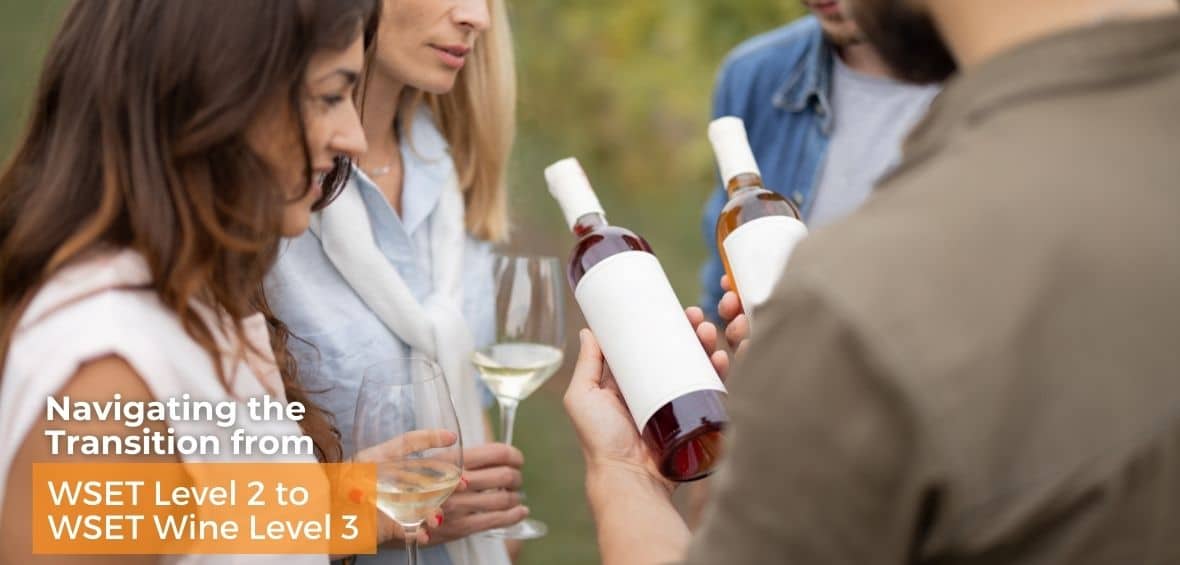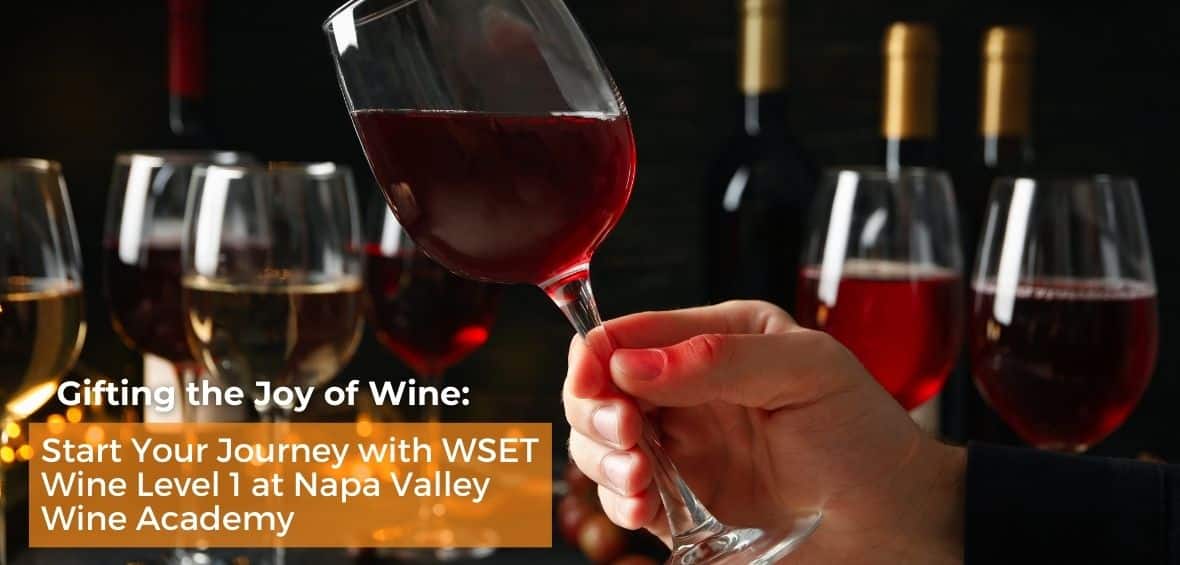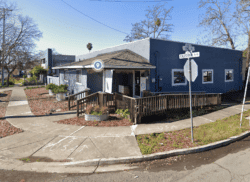WINE & LITERATURE
By Stacy Briscoe
Wine has a drastic, an astringent taste. I cannot help wincing as I drink. Ascent of flowers, radiance and heat, are distilled here to a fiery, yellow liquid. Just behind my shoulder-blades some dry thing, wide-eyed, gently closes, gradually lulls itself to sleep. This is rapture. This is relief. —Virginia Woolf
I’ve always been drawn to the similarities between literature and wine. I majored in English Language literature at UC Santa Cruz. Interestingly, at the time, I deplored wine. But once I started to appreciate it, explore different expressions and regions, and taking my own tasting notes, I found the book- and word-nerd in me came out.
Drinking wine is like reading a good book. I sip and savor to discover a wine’s story—taste the scenery where the grapes were grown, drown in the dialogue between terroir and grape, befriend the character of the winemaker.
And like the art of creating wines of substance, the art of writing (now my career) is the art of crafting stories (about wine) with substance. To borrow another quote from Virginia Woolf, “A writer should give direct certainty; explanations are so much water poured into the wine.”
When it comes to wine in English-language literature, as Jancis Robinson MW notes in the Oxford Companion to Wine, “References … are relatively common, and provide a useful record of fashions in wine styles and the history of wine.”
One could easily pick any book off the shelf, find the one line where wine is mentioned, and create a whole thesis surrounding the history, culture, society, art, and so-on as to why that character mentioned that wine at that moment and the significance that drink has to both the story in and of itself as well as the world in which that piece of literature was written.
It’s a thesis topic I continuously contemplate. (Look out, MW, I’m coming for you.)
Below, I’ve gathered lines from famous texts that pertain to wine; and speak to the time and place in which the words were written.
Cheers,
SB
Geoffrey Chaucer, Canterbury Tales:
Written in the late 1300s during the Middle Ages in England, Chaucer’s tales describe a group pilgrimage to Canterbury.
Wine is mentioned throughout the tale—often in conjunction with each character’s preference, be it Bordeaux or mead. And so, when they finally sit down to a meal, they are fortified and prepared for their impending journey by both wine and food:
“Strong was the wine and pleasant to each guest. … / We stood committed to his government. / And thereupon, the wine was fetched anon; / We drank, and then to rest went every one, / And that without a longer tarrying.”
William Shakespeare, Othello:
Othello is by far one of (if not actually) my favorite of Shakespeare’s plays for many reasons.
In this scene, Cassio is lamenting his drunken behavior. His excessive drinking has cost him his livelihood. And Iago—crafty character that he is—imposes,
“Good wine is a good familiar creature if it be well used.”
Remember, friends, like fine wine, should always be enjoyed in moderation.
Jane Austen, Northanger Abbey:
If unfamiliar with Austen’s Northanger Abbey, it’s a story that spans literary genres—coming-of-age meets Gothic Romanticism. Our main character Catherine is an unlikely hero, by virtue of the fact that she is a young woman. And, like many stories of the time (1800s) the dynamics between men and women is a consistent theme.
“There is not the hundredth part of the wine consumed in this kingdom that there ought to be. Our foggy climate wants help.”
I like the word “climate” in this quote from the arrogant John Thorpe. Is he talking about England’s social and/or political climate? Maybe. I like to think he’s speaking to the fact that England is cold, wet, and rainy on most days. One needs a bottle to keep warm.
Charles Dickens, Great Expectations:
Great Expectations is my absolute favorite Dickens’ novel. (I’m still mad at my friend who “borrowed” my copy and then proceeded to move across the country…)
I’m not going to lie, though, I chose this line because it just makes me smile.
“Take another glass of wine, and excuse my mentioning that society as a body does not expect one to be so strictly conscientious in emptying one’s glass, as to turn it bottom upwards with the rim on one’s nose.”
Another argument for downing a whole bottle.
Emily Dickenson, “I bring an unaccustomed wine”:
I studied Dickenson, but I don’t remember this piece and only came across it recently.
I bring an unaccustomed wine
To lips long parching
Next to mine,
And summon them to drink;
Crackling with fever, they essay,
I turn my brimming eyes away,
And come next hour to look.
The hands still hug the tardy glass—
The lips I would have cooled, alas …
I’ve read a couple of different interpretations, but for me, I see the speaker bringing a loved one their last drink. Dying, maybe suffering, she turns away, only to return and find they have passed, clutching the still-full glass in their hands.
F. Scott Fitzgerald, The Great Gatsby:
It’s interesting how we romanticize the past. Sometimes I think I lived a past life in the Roaring 20s. Gatsby, for his part, is a character that romanticized his present.
“In his blue gardens men and girls came and went like moths among the whisperings and the champagne and the stars.”
This line captures Gatsby in a nutshell—people are drawn to him (like a moth to a flame) he’s filled with intrigue (rumors, “whisperings”), and the guy knew how to throw a good party (Champagne—required).
Earnest Hemmingway, The Sun Also Rises:
It’s not drinking alone if the dog’s home. I’ve heard that somewhere. But can we all admit that sometimes—sometimes—it’s the bottle of wine itself that makes the best companion?
“I drank a bottle of wine for company. It was Chateau Margaux. It was pleasant to be drinking slowly and to be tasting the wine and to be drinking alone. A bottle of wine was good company.”
E.M. Forster, A Passage to India:
Stacy Fact: I wrote my senior thesis about A Passage to India, so I had to include this line.
“Then there was the question of alcohol; Mr. Fielding, and perhaps the ladies, were drinkers, so must he provide whisky-sodas and ports?”
There are extreme cultural and social barriers separating the main character, Aziz, and his English guests. Though alcohol is not in his culture, in this scene he goes out of his way to find a drink pleasing to the “upper class” visitors. This won’t be the only time (nor, admittedly, most significant) in which he puts himself out for Fielding, Adela, and Mrs. Moore…
J.R.R. Tolkein, Lord of the Rings:
“… [T]ea—or maybe something a little stronger? I’ve got a few bottles of the old Wineyard left! 1296, very good year—almost as old as I am! It was laid down by my father. What say we open one?”
This is a hobbit trying really hard to impress a wizard. I think we’ve all been there.
George R.R. Martin, A Game of Thrones:
“Everything’s better with some wine in the belly.”
Thanks, Tyrion, I knew I could trust you with a good closing line.














